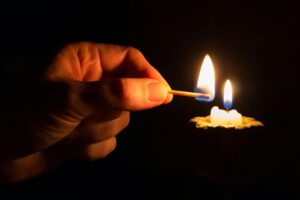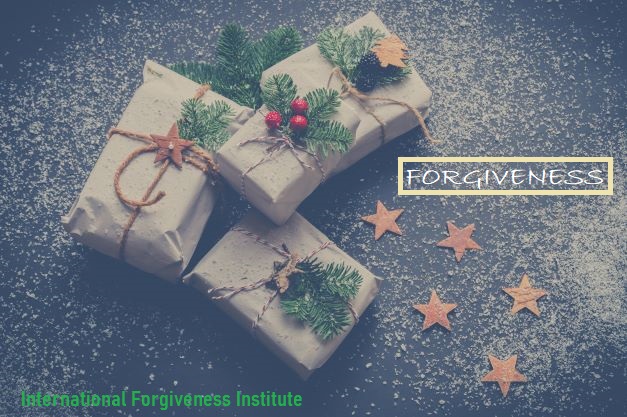Consequences of Forgiving
A Forgotten History of Polish People’s Forgiveness After Auschwitz
This is a guest blog post from Edward Reid, who runs the “Polish History” site on Facebook. The essay, copied in full here with Mr. Reid’s permission, shows the forgiving nature of the Polish people after Rudolf Höss brutalized so many in Auschwitz.
Facebook page – April 16, 2025
The essay is as follows:

Image by Karolina Grabowska, Pexels.com
In 1947, Rudolf Höss, commandant of German KL Auschwitz in the years 1940-1943, was sentenced to death by the Supreme National Tribunal in Poland. Two weeks later, on 16 April, he was hanged next to the crematorium of the former concentration camp.
Rudolf Höss did not fear death. What he feared was torture, which he believed was inevitable at the hands of his Polish captors. After all, Auschwitz had been located in German-occupied Poland, and it was the Polish people who had suffered so terribly under his command.
What he encountered instead left him stunned.
He was not met with hatred or violence, but with decency and restraint. “I have to confess that I never would have expected to be treated so decently and so kindly in a Polish prison,” he later wrote. That unexpected mercy opened something within him. Several of the Polish guards, themselves former prisoners of Auschwitz, quietly showed him the tattoos burned into their arms. Rather than seek revenge, they treated him with dignity.
It was an act that brought him shame. If those he had helped torment could offer him humanity, then perhaps, he began to wonder, God might offer him mercy as well. Apathy gave way to guilt. Recognition replaced denial. He began to grasp the weight of what he had done.
For the first time, his soul responded to a flicker of love. The ideology he had once followed so blindly had taught him that Poles were inferior, little more than cattle. But now, through their compassion, he saw clearly the humanity of those he had dehumanized. And in that realization, he began to understand the true gravity of his crimes.“In the solitude of my prison cell, I have come to the bitter recognition that I have sinned gravely against humanity,” he wrote. “I caused unspeakable suffering for the Polish people in particular. I am to pay for this with my life. May the Lord God forgive one day what I have done. I ask the Polish people for forgiveness.”
By all accounts, his repentance appeared genuine. On April 4, 1947, which was Good Friday that year, Höss asked to make a confession. The prison guards struggled to find a priest who spoke fluent German. That is when Höss remembered Father Władysław Lohn, a Jesuit he had once saved from execution. The guards located him in Łagiewniki, Poland, where he was then serving as chaplain at the Shrine of Divine Mercy. Father Lohn heard his confession on the Thursday of Easter week. The next day, he gave him Holy Communion and Viaticum.
Witnesses said that as Höss knelt in his prison cell, he appeared like a small boy.
The man who had once been trained to suppress all weakness now wept openly.
Five days later, on April 16, 1947, as the noose was placed around his neck at Auschwitz, Father Tadeusz Zaremba stood beside him and recited the prayers for the dying.
Whether or not he deserved forgiveness is something each person must decide for themselves. But the crimes committed against the Polish people must never be forgotten.
And neither should the quiet strength of those who, even in the face of unimaginable suffering, chose mercy. This is also why the Polish people, despite their profound heroism and the scale of their suffering were left behind in the telling of history. They did not turn their pain into politics or profit. They did not build monuments to themselves and demand all the world bow to their wounds. They endured in silence behind the Iron Curtain. Many showed mercy when they had every right to hate. And in doing so, they were forgotten by a world that rewards those who shout the loudest, not those who suffer with dignity.
But the truth remains. It was not only the victims who showed humanity – it was the forgotten Polish guards, the priests, the villagers, the mothers, the resistance fighters. They gave the world a quiet, sacred kind of courage.
The kind that history has yet to fully honor…
Questioning the Ubiquitous Statement, “Forgiveness Is What You Do for Yourself, Not for the Other”

Image by Leeloo the First, Pexels.com
In perusing the internet lately for news on forgiveness, I was faced at least occasionally with the statement in the title above. More than a few people post this idea that forgiveness is centered on the self and not no the one who behaved unjustly.
Let’s carefully examine this statement about forgiveness for the self and see how it goes.
If forgiveness is for ourselves and not for the one who behaved unjustly, then forgiveness is not one of the moral virtues along with justice, patience, compassion, and love if it is not “for other people.” So what is it? The “for ourselves” statement limits forgiveness to a self-help psychological strategy for emotional healing. It would seem that we are free to ignore, disregard, or show no concern for the people who have wronged us if they are not included in this healing equation. To forgive, then, could be to dismiss.
Such a perspective then takes away the paradox of forgiveness. The paradox is this: As we focus on the other person and strive for empathy, compassion, and a wider view of who this person is beyond the injustice, our own hearts begin to soften toward that other person. As the heart softens, the resentment, which is a nagging and persistent deep anger, begins to lessen. Over time, as we focus this goodness on the other it is we ourselves, as forgivers of the other, who begin to heal. Do you see the very large distinction between focusing on the other with a sense of goodness, which is the essence of forgiveness, and one important consequence of forgiving? The consequence, paradoxically, is that as we strive for goodness expressly toward the other person, it is we as forgivers who heal.
We must not confuse what forgiveness is with a consequence of what forgiveness accomplishes. Forgiveness is what we do in goodness toward the offending person. An important consequence of such a focus on the other is that we experience emotional healing.
![]()
Forgiveness Gives Light

Image by Pixabay, Pexels.com
I was surprised this past summer when I read negative commentaries about forgiveness coming from major media outlets. As I argued on August 21, 2024 within this blog site, those criticizing forgiveness were misunderstanding what it is, confusing it, for example, with automatic reconciliation or being pressured into it as a norm that makes people miserable.
In this essay, I would like to take a different approach. Instead of dwelling on the darkness of misunderstanding, I would like to consider what forgiveness actually is when freely chosen and embraced by those who have been poorly treated.
Let us start with an analogy. We are in a dark room, and it is hard to see anything at all. In comes a little child who goes over to a bureau, picks up a candle, and carries it to you along with a match. “Would you light this candle for me, please?” the child requests. As you strike the match and unite it with the candle’s wick, all of a sudden there is bright light where there was darkness. You can see the smiling child clearly. You can see the paintings on the wall and the soft furniture, welcoming you to sit down and relax.
Forgiveness is like the lighted candle. At first, our hearts seem darkened by the injustices we suffer. That darkness almost seems as if it will be part of our identity, a part of who we are as persons. Yet, when we forgive, we offer goodness to those who have not been good to us. We offer them the light of a second chance. We offer them a view that they have worth despite what they did. We offer them light.
At the same time, and our science shows this over and over, as a person willingly and patiently gives this light of forgiveness to others, the darkness in one’s own heart fades, and the light of love can and does replace it. As that light shines onto the offending other person, it also finds its way into the hearts of our loved ones as we no longer displace our anger, our darkness, onto them.
As we give the light of forgiveness to others, that light can remain in their hearts and gives them a chance to pass that light of love to even more people. Have you ever thought of forgiveness this way? As you give the light of goodness to others, your light can be passed from one person to another, even from one generation to another. That one candle, lit in one dark room, can continue to shine across time and into many hearts.
Forgiveness is not the darkness of forced reconciliation or forced and phony empathy. When fostered and given freely to others, it is one of the most extraordinary forms of humanity.
Welcome to the light of forgiveness. May your light of forgiveness shine this Thanksgiving weekend…..and well beyond that to others.
![]()
Forgiveness Can Expand Your Vision
When we are consistently angry over deep injustices against us, it can narrow our vision. We think about the person and what happened, we dream about the person, we can become preoccupied with the past.

Image by Pexels.com
In contrast, when we forgive, we see both a more complete person in the one who acted badly and an expanded hope for the future. As we forgive one person, we often are motivated to forgive others. As we continue to forgive, there often develops in us a motivation to assist others in their suffering. Our vision expands so that we see beneath the surface of others. We see their pain……and we want to help. As we continue to forgive and to aid others in their suffering, we can begin to expand our view of humanity, of who each person is as someone of inherent worth, special, unique, and irreplaceable.
As we forgive, we expand our vision of: a) the one who hurt us; b) hurting people in general; c) and humanity in general. The expansion tends to be what Lewis Smedes used to call “seeing with new eyes.” These are eyes of expansion, toward greater positivity and hope for humanity. These are eyes of expansion in seeing the self in new ways, with a new meaning and purpose in life for others.
Forgiveness is part of love and beauty and so as we forgive, we become more attuned to both love and beauty and want to contribute more of these into the world. The expanded vision does not lessen what happened, but it makes what happened more bearable as healing takes place and love expands.
![]()
Consider Giving the Gift of Forgiveness This Year
In the season of giving, one of the most beautiful gifts you might consider giving is forgiveness. The ideas that forgiving is a gift to those who have hurt you sometimes gets forgiveness into trouble. In other words, people think it is irrational to consider offering a gift to those who are unfair. The typical reasons for this resistance to forgiveness as gift-giving are these:
- It is dangerous to reach out to those who act unfairly because I am open to further abuse.
- My gift-giving might be a signal to the misbehaving others that their actions are acceptable, which they are not.
- Gift-giving to those who acted unfairly seems counter-intuitive to my own healing. I need to move on and not focus on this other person.
 The ideas above can be countered this way: With regard to (A), you do not necessarily have to reconcile with an unrepentant person who keeps harming you. You can give your gift from a distance, such as a kind word about the person to others or an email so that you can keep your distance if this is prudent to do so. With regard to (B), you can forgive and ask for justice. Forgiving never means that the other just goes ahead as usual with hurtful behaviors. In other words, if you decide to forgive, you can and should ask for fairness from the other person. With regard to (C), forgiveness will seem counter-intuitive as goodness to those who are not good to you only if your focus is entirely on justice or a fair solution to the problem. If you begin to see that mercy (in the form of forgiving) and justice can and should exist side-by-side, then perhaps this idea of forgiveness as a contradiction or as inappropriate or as somehow odd may lessen in you.
The ideas above can be countered this way: With regard to (A), you do not necessarily have to reconcile with an unrepentant person who keeps harming you. You can give your gift from a distance, such as a kind word about the person to others or an email so that you can keep your distance if this is prudent to do so. With regard to (B), you can forgive and ask for justice. Forgiving never means that the other just goes ahead as usual with hurtful behaviors. In other words, if you decide to forgive, you can and should ask for fairness from the other person. With regard to (C), forgiveness will seem counter-intuitive as goodness to those who are not good to you only if your focus is entirely on justice or a fair solution to the problem. If you begin to see that mercy (in the form of forgiving) and justice can and should exist side-by-side, then perhaps this idea of forgiveness as a contradiction or as inappropriate or as somehow odd may lessen in you.
Forgiveness can be a gift in these ways:
- As you forgive, you are giving the other person a second chance at a trustworthy relationship with you. Of course, trust takes time to develop, but forgiveness opens the door, even if a little, to trying the trust-route with the other who behaved unjustly.
- Forgiveness can be a merciful way of showing the other what the injustice actually is (or was), making possible positive change in the other. Those who behave badly and are offered this mercy may begin to see the unfairness more clearly and have the inner conviction that change indeed is necessary.
- Forgiveness can be a gift to yourself as you shed abiding anger that could have been yours for many years. You have a second-chance at stronger mental health.
- As you reduce toxic anger, this actually can be an aid in strengthening your relationships with people who were not the ones who acted badly. After all, when people carry around a lot of anger in their hearts, they can displace that anger onto unsuspecting others. Your forgiving one person, then, can be a gift to others who do not have to endure your displaced anger.
So, then, what do you think? Do you see that in the season of giving, one of the most beautiful gifts you might consider giving is forgiveness?
![]()



